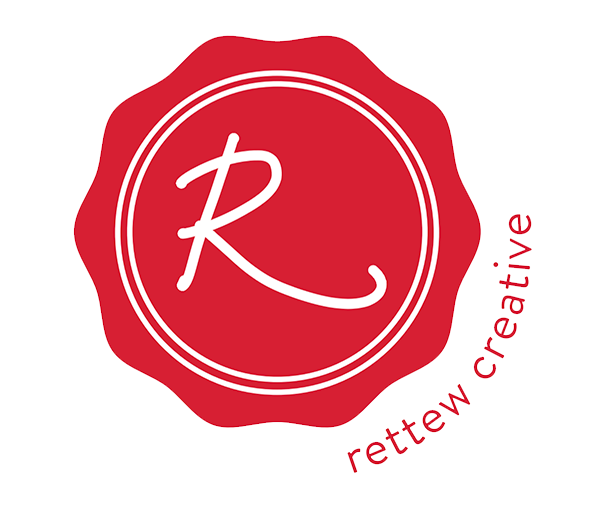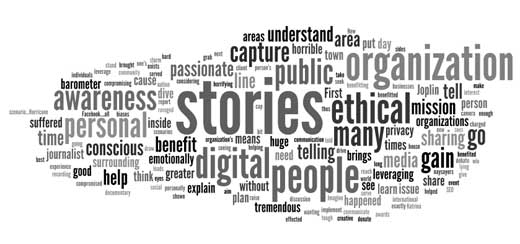The ethics behind storytelling…
The other day, I was having a long creative session with a new client and the topic of ethics was the basis of our discussion. Yes, how can we tell stories without morally compromising an organization. Let’s dive into this a bit.
First, how can we tell stories of those who have benefited from the organization’s mission and are not compromised as leverage for public awareness. What do I mean? Imagine an organization wanting to tell their story, and as their mission they help people during tough times. But in order to explain their mission for the public at large to understand, they ask people to explain how the organization has helped them.
This brings up two ethical dilemmas:
1) privacy of those being served by the organization
2) the ethical barometer of the organization
We are all very passionate about a cause, we are all very passionate about sharing the story of our cause. But are we passionate enough to share the stories of those we serve, even though privacy is an issue, as a means to promote with an aim for helping the greater good? What is the greater good? Who is to benefit from the stories to be told? The people who have suffered and now have chosen to share to benefit the brand, the people who could learn from this experience, or the people who could learn that an organization exists and go seek help?
Let’s take a few scenarios:
First, think about Joplin, MO and the tornados that have ravaged this small town. In the age of social media and digital awareness, many flocked to help these people. Many people felt the need to give, donate time, or just go see with their own eyes. But there are many digital media enthusiasts who jumped at the opportunity to go capture the story, the many horrifying stories for personal benefit. Specifically, going to Joplin to capture stories to put on their blog, put on YouTube, shoot a documentary, raise awareness in a fashion that benefitted them personally, leveraging this horrible time for their personal gain. So many organizations wanted to be the first to report, grab the SEO, share it on Facebook….all for personal gain.
For you naysayers, I understand the public awareness this coverage brings for this international story. I understand that these digital media stories brought tremendous awareness, thus influenced tremendous giving, donations, and public outreach for those who suffered this horrible event.
But this leads me to my next scenario…Hurricane Katrina. I was on the ground the day after the storm hit. It was my job to go to the outlying areas surrounding New Orleans and capture stories, those explaining what had happened in their area. We journalists were the only means to communicate what had happened in the outlying areas…because all the communication channels were destroyed.
So many times, I would drive up to a house, town, area and someone was outside looking at the area and they were emotionally charged. At what moment do we begin to capture those stories when those individuals are in a state of panic and cannot make the conscious decision that what they’re sharing emotionally could be shown around the nation. This is and has been a huge ethical debate in the journalistic world. Who is winning here, who is benefitting from this story…especially if the journalist is recording with the camera because he/she knows this will win them some huge awards.
So, let’s implement this into telling stories inside businesses, non-profits, and organizations. Where does your ethical barometer lie when considering telling a story from inside your organization? Do you have the best interest of the person in mind, or do you have on your digital marketing cap, seeing the potential viral reach of a story? Are you leveraging this person’s story for personal gain? Are we conscious of the potential outcome from this story?
I see both sides of the issue…the one that sees the public gain from hearing a story and the desire to protect one’s story from the digital community. I do not think each of us can say exactly where we stand on this issue. Each person cannot say they have a hard line they can draw because each story is contextual and is affected by our own daily, personal biases. We as digital communicators need to be conscious of our decisions when we plan a storytelling strategy. We have to create a thoughtful plan that includes implications of telling stories that might ride the ethical line. But whose ethical line are we riding?
These questions lead me to my final thought…the velocity of the digital world and need to share as a derivative is blurring the ethical lines of storytelling. The need to share online, to collect information, has become competitive in nature. This capitalist idea has created the need to share the same content faster than the next, to generate SEO back to our blogs, websites, and other portals. Digital communicators are competing online for a stake in the SEO game…to gain a piece of the digital pie. This digital velocity accelerates during times of big digital news.
So where does this leave us? It leaves us in a place to seek and understand where we hang out in this ethical continuum of digital storytelling? Are we seeking to leverage stories for our personal gain or for the best interest of the great good. Are we raising awareness or just creating more noise in the digital spectrum?

